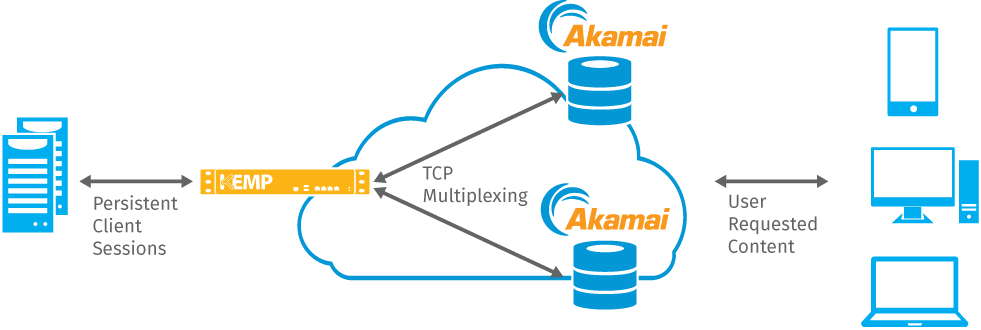
LoadMaster for Akamai
In the Akamai network infrastructure content services users contact the Akamai Edge Server which will either serve up cached content or place a call into the appropriate origin server. In the case where the Edge Server calls the origin server for content, there are two functions that the Edge performs that can complicate the operation of Load Balancers front-ending the infrastructure resulting in connection issues due to failed session persistence.
The Akamai Edge server performs TCP multiplexing of many different client sessions within a single TCP connection in order to optimize the use of those connections between it and the Load Balancer. The Akamai Edge also requires that cookies not be used for persistence. Instead, they use True-Client-IP in the header. This can result in challenges for Load Balancers since it makes it difficult for them to differentiate between individual client connections, resulting in broken persistence or overloading of individual servers.

The Kemp LoadMaster Load Balancer has specialized capabilities designed to support this Akamai functionality, thereby optimizing the performance of the origin servers that it’s servicing. The Kemp LoadMaster inspects every request to ensure each client persists to the same origin server for all their sessions. The LoadMaster looks at the header, extracts the client IP and creates and entry in its database for that client. Since there are multiple client IPs coming into the LoadMaster on the same TCP connection it is critical that these are identified, broken out, and forwarded to the target service consistently for each client.
Kemp’s Akamai add-on pack automatically configures LoadMaster deployments with the required settings to optimize application traffic flows for clients leveraging Akamai’s services.
